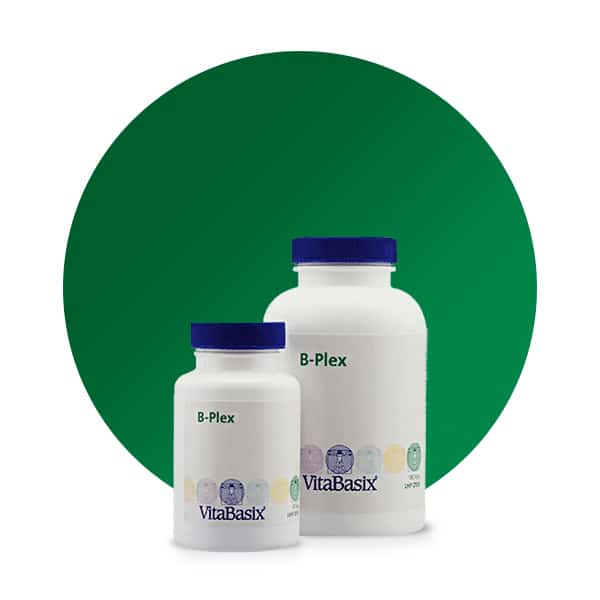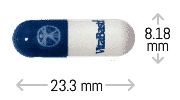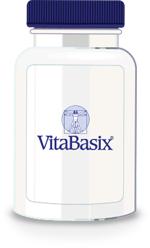Vitamins are necessary for proper cell metabolism and fulfil catalytic functions without serving as building materials themselves. Thirteen vitamins are known, each of which fulfils specific tasks. In terms of their solubility, vitamins are divided into two different groups: Fat-soluble vitamins (A, D, E, and K) and water-soluble vitamins, which include the B vitamins and vitamin C. Vitamins are essential for good health, because without them the human body would simply stop functioning.
Vitamins, together with enzymes, are involved in many chemical reactions in the body. For example, the B vitamins and vitamin C play an important role in numerous metabolic processes and the excretion of various environmental pollutants.
Poor nutrition, environmental influences and many other factors can lead to an undersupply of sufficient amounts of vitamins from the daily diet.
The B vitamins are found in many animal and plant foods such as fish, meat, eggs, nuts and legumes.
The most important of these include:
Vitamin B1 (thiamine): Is crucially involved in carbohydrate metabolism. It is involved in the breakdown of carbohydrates in the muscles, brain and other organs, and is therefore important for physical fitness and mental concentration.
Vitamin B2 (riboflavin): Contributes to the maintenance of normal red blood cells, as well as normal skin and vision. It also contributes to normal energy and iron metabolism. It is also involved in protecting cells from oxidative stress.
Vitamin B5 (pantothenic acid): This vitamin contributes to normal energy metabolism, normal mental performance and the reduction of tiredness and fatigue. It also contributes to the normal synthesis and metabolism of steroid hormones, vitamin D and some neurotransmitters.
Vitamin B6 and vitamin B12: These vitamins contribute, among other things, to a normal function of the nervous system and to a normal mental function as well as to a normal homocysteine metabolism. They also contribute to normal hormone activity.
Vitamin C: Citrus fruits are considered to be the classic main suppliers of vitamin C. But many vegetables such as peppers, broccoli and cabbage are rich in vitamin C as well. It contributes to a normal function of the immune system and to protecting the cells from oxidative stress.
MSM (methyl-sulfonyl-methane): Is an important sulphur compound that plays a role in the synthesis of many proteins, including those found in muscles, joints, skin and hair. It is found in almost all foods (milk, fruit, vegetables, cereals, meat, fish, etc.), but is often destroyed by excessive heating.
Folic acid: Also known as vitamin B9. Is found in green leafy vegetables such as spinach, cucumbers and cabbage. Legumes, nuts and oranges are also rich in folic acid. It is involved in many biological processes and contributes to normal immune system function, normal blood formation and normal cell division, among other things. Supplementing with folic acid is an essential part of preparing for pregnancy. It is often advised to supplement this vitamin especially before and during the first three months of pregnancy, as the increased requirement often cannot be covered by the diet.





 Chronobrands
Chronobrands



Reviews
There are no reviews yet.